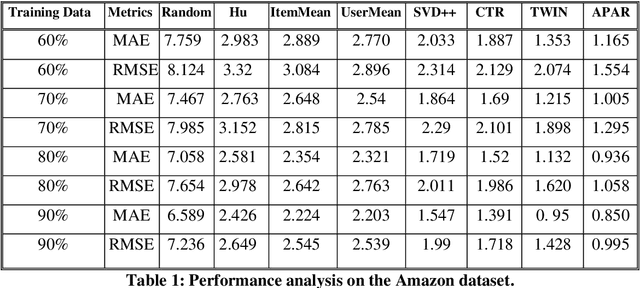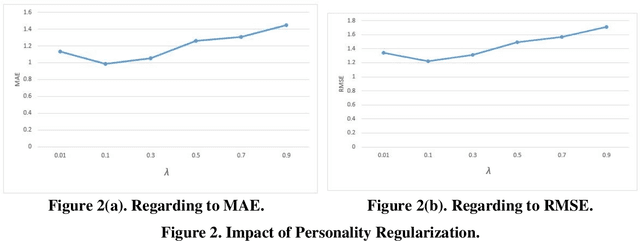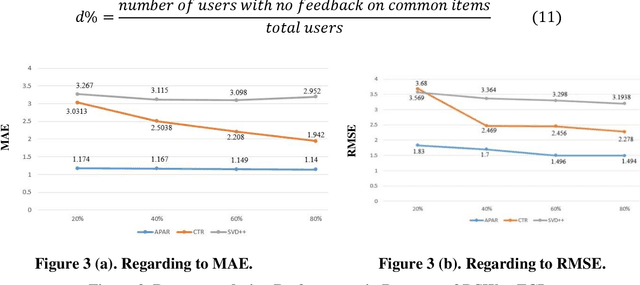Shahpar Yakhchi
Macquarie University- Sydney-Australia
Learning Complex Users' Preferences for Recommender Systems
Jul 04, 2021Abstract:Recommender systems (RSs) have emerged as very useful tools to help customers with their decision-making process, find items of their interest, and alleviate the information overload problem. There are two different lines of approaches in RSs: (1) general recommenders with the main goal of discovering long-term users' preferences, and (2) sequential recommenders with the main focus of capturing short-term users' preferences in a session of user-item interaction (here, a session refers to a record of purchasing multiple items in one shopping event). While considering short-term users' preferences may satisfy their current needs and interests, long-term users' preferences provide users with the items that they may interact with, eventually. In this thesis, we first focus on improving the performance of general RSs. Most of the existing general RSs tend to exploit the users' rating patterns on common items to detect similar users. The data sparsity problem (i.e. the lack of available information) is one of the major challenges for the current general RSs, and they may fail to have any recommendations when there are no common items of interest among users. We call this problem data sparsity with no feedback on common items (DSW-n-FCI). To overcome this problem, we propose a personality-based RS in which similar users are identified based on the similarity of their personality traits.
Enabling the Analysis of Personality Aspects in Recommender Systems
Jan 07, 2020



Abstract:Existing Recommender Systems mainly focus on exploiting users' feedback, e.g., ratings, and reviews on common items to detect similar users. Thus, they might fail when there are no common items of interest among users. We call this problem the Data Sparsity With no Feedback on Common Items (DSW-n-FCI). Personality-based recommender systems have shown a great success to identify similar users based on their personality types. However, there are only a few personality-based recommender systems in the literature which either discover personality explicitly through filling a questionnaire that is a tedious task, or neglect the impact of users' personal interests and level of knowledge, as a key factor to increase recommendations' acceptance. Differently, we identifying users' personality type implicitly with no burden on users and incorporate it along with users' personal interests and their level of knowledge. Experimental results on a real-world dataset demonstrate the effectiveness of our model, especially in DSW-n-FCI situations.
* This article contains 3 figures and 14 pages
 Add to Chrome
Add to Chrome Add to Firefox
Add to Firefox Add to Edge
Add to Edge